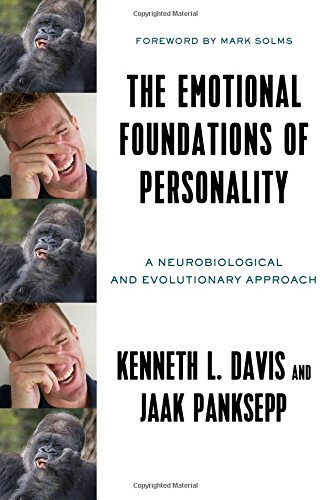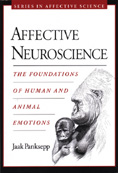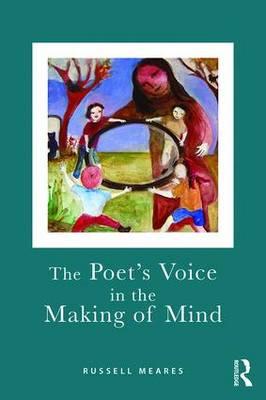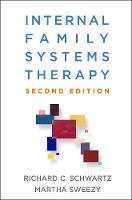The Archaeology of Mind: Neuroevolutionary Origins of Human Emotion
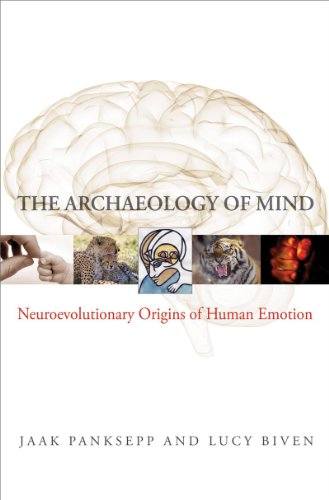
Book Details
- Publisher : W.W.Norton
- Published : January 2012
- Cover : Hardback
- Pages : 384
- Category :
Neuroscience - Catalogue No : 33168
- ISBN 13 : 9780393705317
- ISBN 10 : 0393705315
Also by Jaak Panksepp
Textbook of Biological Psychiatry
Price £167.00
There are currently no reviews
Be the first to review
A look at the seven emotional systems of the brain - seeking, lust, rage, fear, care, grief, and play - by the researcher who discovered them. This book provides an easy-to-understand explanation of the way in which these common systems guide emotional life in all mammals, including humans.
What makes us happy? What makes us sad? How do we come to feel a sense of enthusiasm? What fills us with lust, anger, fear, or tenderness? Traditional behavioral and cognitive neuroscience have yet to provide satisfactory answers. The Archaeology of Mind presents an affective neuroscience approach - which takes into consideration basic mental processes, brain functions, and emotional behaviors that all mammals share - to locate the neural mechanisms of emotional expression. It reveals - for the first time - the deep neural sources of our values and basic emotional feelings.
Reviews and Endorsements
This book elaborates on the seven emotional systems that explain how we live and behave. These systems originate in deep areas of the brain that are remarkably similar across all mammalian species. When they are disrupted, we find the origins of emotional disorders:
- SEEKING: how the brain generates a euphoric and expectant response
- FEAR: how the brain responds to the threat of physical danger and death
- RAGE: sources of irritation and fury in the brain
- LUST: how sexual desire and attachments are elaborated in the brain
- CARE: sources of maternal nurturance
- GRIEF: sources of non-sexual attachments
- PLAY: how the brain generates joyous, rough-and-tumble interactions
- SELF: a hypothesis explaining how affects might be elaborated in the brain
The book offers an evidence-based evolutionary taxonomy of emotions and affects and, as such, a brand-new clinical paradigm for treating psychiatric disorders in clinical practice.
'This is a highly original and exciting book. The vital distinction between eager anticipation and straightforward pleasure is only one among many of its important findings. The implications for clinical assessment and treatment, especially with depressed and cut-off patients, are profound.'
— Anne Alvarez, PhD MACP, Consultant Child and Adolescent Psychotherapist, Tavistock Clinic, London
'Panksepp’s perspective on the continuity of animal and human minds has not received the attention it deserves. Here are the collected facts and the reasoning behind that compelling view. An indispensable volume.'
— Antonio Damasio, author of Self Comes to Mind, and David Dornsife Professor of Neuroscience and Director, Brain and Creativity Institute, University of Southern California
'Immensely learned, consistently lucid, and truly groundbreaking. This book repeatedly elicited my ‘ahhhh, yes.’ For Panksepp and Biven, understanding the evolution of the brain holds the key to solving large-scale mysteries about how the brain works. Thus, they draw upon detailed comparisons of the behavior and functional anatomy in mammals, from rodents to humans. The upshot is a profoundly insightful theory, especially as it explains the complex relation between the subcortical platform of motivations, emotions, and automatic responses, and the evolutionary newcomer—the cortex— whose sophisticated contribution to control, evaluation and knowledge emerges as the brain learns and develops into maturity.'
— Patricia Smith Churchland, Professor Emerita, University of California, San Diego
'Jaak Panksepp is the most important theorist of mental life that I have read since Freud. The impact of his scientific contributions will be felt for decades to come. His findings — so lucidly introduced in this accessible book with Lucy Biven — herald a new Golden Age. They are almost bound to place 21st-century psychiatry on a whole new foundation. In these pages, the supposed chasm between mind and brain disappears before your eyes, the veil is lifted, and new vistas appear before you. These vistas are the future of the science of the mind.'
— Mark Solms, editor of Freud’s Complete Works
'This book has the capacity to integrate affective neuroscience into the consciousness of not only therapists, but also those interested in understanding depth motivation that sustains or pathologizes our every action and thought. It is a truly pioneering effort. Its deep truths about the origins of mind and feeling, and the implications for altering how we see ourselves over evolutionary time, connected to our fellow social mammals and birds, also has implications for how we treat our fellow travelers on this planet.'
- Stuart Brown, MD, Founder and President, The National Institute for Play
Customer Reviews
Our customers have not yet reviewed this title. Be the first add your own review for this title.
You may also like
Borderline Personality Disorder and The Conversational Model: A Clinician's...
Russell Meares
Price £30.99


